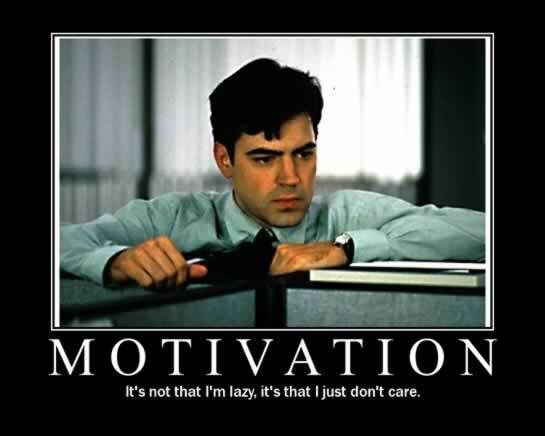Everyone has daily tasks that need to get done whether he or she wants to do them or not. Sometimes we are forced to get off of our couches (despite how comfortable they are) and get to work. This is where motivation comes into play.

The three words I would like to talk about today are motivation, intrinsic, and extrinsic. These three words are closely related. We can be intrinsically or extrinsically motivated.
- Motivation: I would define the word "motivation" as the driving force behind one's actions. This is what forces us to fulfill our responsibilities. Motivation makes us work to achieve our daily tasks (whether we want to or not). This compulsion can come from within us or the people and environment around us. Without it, no one would be able to accomplish their goals, prosper, or even be able to keep a job. As Lou Holtz, retired American football coach, and active sportscaster, author, and motivational speaker, once said, “Ability is what you're capable of doing. Motivation determines what you do. Attitude determines how well you do it.” Everyone takes motivation from somewhere to get out of bed and make accomplishments in the real world.
- Intrinsic: The definition of this word is belonging to something by its very nature. Therefore, intrinsic motivation comes from within oneself naturally. You may be motivated to exercise regularly because of your innate, internal desire to be fit and in good health. As children, most of us were intrinsically driven to learn to ride a bike. We did not wish to learn in order to reap some external benefit. We simply thought it would be a fun experience. Intrinsic motivation tends to run a fairly long course. When our inspiration to achieve something comes from inside of us, we are more likely to stick to the task at hand because we honestly want to do it and enjoy the challenge.
- Extrinsic: This word means to be outside of something; not essential or inherent. Extrinsic motivation is what provokes us to accomplish our more mundane business. One who works in sales could be motivated to sell the most goods because there is a contest in which the highest seller wins a vacation. A student could also be extrinsically motivated to work hard in school by the prospect of obtaining all A's on his or her report card. Of course extrinsic motivators can also be negative. A child can be extrinsically motivated by its mother to stop yelling otherwise she will take its favorite toy away. However, extrinsic motivators often wear off after a period of time. Once the vacation has been won or the report card is mailed home we stop being motivated by those things. Although last month the sales employees may have worked harder than ever before to win the prize, this month their productivity will take a rapid decline because there is no longer a force motivating them.
Think of a task you should accomplish today even if it seems horribly monotonous. Will you motivate yourself intrinsically or extrinsically to get it done? No option is better or worse than the other. Simply use whatever force is more powerful to you personally, and just get it done.

No comments:
Post a Comment